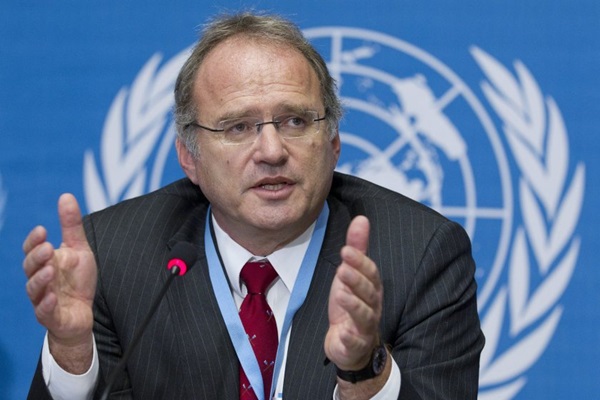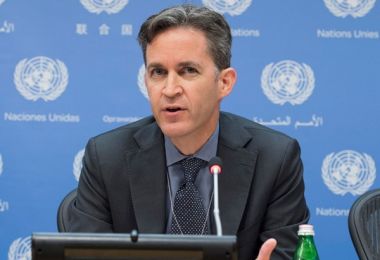U.N. experts slam extremely 'irresponsible' comments by Philippine president-elect Duterte justifying the killing of journalists


Two United Nations human rights experts strongly condemned recent statements made by Philippine president-elect Rodrigo Duterte suggesting that journalists are not exempt for assassination, urging the incoming leader to immediately stop instigating deadly violence.
Speaking at a press conference in Geneva, Switzerland on Monday, UN Special Rapporteur on summary executions, Cristof Heyns, noted a statement made by Duterte during a recent press conference in Davao City, southern Philippines, where he said most journalists killed in the country have done something wrong. "You won't be killed if you don't do anything wrong," Duterte said, suggesting that the victims were partly to blame for their fate, according to a report that appeared on the website of the Office of the United Nations High Commissioner for Human Rights (OHCHR).
"A message of this nature amounts to incitement to violence and killing, in a nation already ranked as the second-deadliest country for journalists," Heyns said. "These comments are irresponsible in the extreme, and unbecoming of any leader, let alone someone who is to assume the position of the leader of a country that calls itself democratic."
Since a people power revolt ousted the dictatorship of President Ferdinand Marcos three decades ago, 174 journalists have been murdered in the Philippines under the chaotic and corruption-plagued democratic governments that followed, according to the Philippine Daily Inquirer.
David Kaye, another U.N. independent expert, also expressed alarm at Duterte's statements.
"Justifying the killing of journalists on the basis of how they conduct their professional activities can be understood as a permissive signal to potential killers that the murder of journalists is acceptable in certain circumstances and would not be punished," he said in the statement.
"This position is even more disturbing when one considers that the Philippines is still struggling to ensure accountability to notorious cases of violence against journalists," he said.
He referred to the massacre that took place in southern province of Maguindanao in November 2009, in which the son of a political warlord and his bodyguards mowed down 58 people, including 32 journalists — making it one of the world's deadliest attacks on media workers.
Kaye also blasted Duterte's warning to journalists that he could not guarantee their safety "if you disrespect a person."
"Such provocative messages indicate to any person who is displeased by the work of a journalist or an activist, for example, that they can attack or kill them without fear of sanction," he said.
Duterte also promised to pay bounties to police and military officials for every drug lord they turn in. "I'm not saying that you kill them, but the order is dead or alive," Duterte said in a televised news conference.
Heyns said, "Talk of 'dead or alive' has no role to play in any state that claims to uphold human rights in law enforcement."
"Intentional lethal use of force may only be made when strictly unavoidable in order to protect life and not for common policing objectives," he said. "The President-elect fools no one when he says he is not calling on people to be killed."











